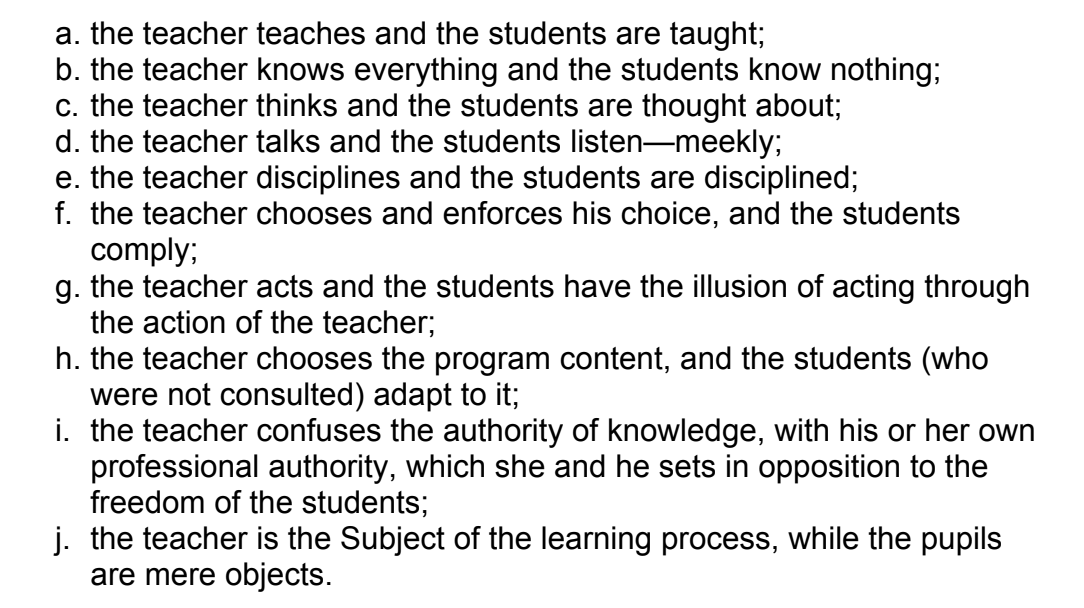The “Banking” Concept of EducationThis post is the summary note after studying the related article. A careful analysis of the teacher-student relationship at any level, inside or outside the school, reveals its fundamentally narrative character. Narration (with the teacher as narrator) leads the students to memorize mechanically the narrated content. Education thus becomes an act of depositing, in which the students are the depositories and the teacher is the depositor. Instead of communicating, the teacher issues communiques and makes deposits which the students patiently receive, memorize, and repeat. This is the "banking" concept of education, in which the scope of action allowed to the students extends only as far as receiving, filing, and storing the deposits. The capability of banking education to minimize or annul the students' creative power and to stimulate their credulity serves the interests of the oppressors, who care neither to have the world revealed nor to see it transformed. The oppressors use their "humanitarianism" to preserve a profitable situation. This solution is not (nor can it be) found in the banking concept. On the contrary, banking education maintains and even stimulates the contradiction through the following attitudes and practices, which mirror oppressive society as a whole: The truth is, however, that the oppressed are not "marginals," are not people living "outside" society. They have always been "inside"—inside the structure which made them "beings for others." The solution is not to "integrate" them into the structure of oppression, but to transform that structure so that they can become "beings for themselves." Implicit in the banking concept is the assumption of a dichotomy between human beings and the world: a person is merely in the world, not with the world or with others; the individual is spectator, not re-creator. The teacher's task is to organize a process which already occurs spontaneously, to "fill" the students by making deposits of information which he or she considers to constitute true knowledge. And since people "receive" the world as passive entities, education should make them more passive still, and adapt them to the world. The educated individual is the adapted person, because she or he is better "fit" for the world. Translated into practice, this concept is well suited to the purposes of the oppressors, whose tranquility rests on how well people fit the world the oppressors have created, and how little they question it. Because banking education begins with a false understanding of men and women as objects, it cannot promote the development of what From calls "biophily," but instead produces its opposite: "necrophily." While life is characterized by growth in a structured, functional manner, the necrophilous person loves all that does not grow, all that is mechanical. The necrophilous person is driven by the desire to transform the organic into the inorganic, to approach life mechanically, as if all living persons were things. . . . Memory, rather than experience; having, rather than being, is what counts. The necrophilous person can relate to an object—a flower or a person— only if he possesses it; hence a threat to his possession is a threat to himself; if he loses possession he loses contact with the world. . . . He loves control, and in the act of controlling he kills life. -It attempts to control thinking and action, leads women and men to adjust to the world, and inhibits their creative power.
0 Comments
Leave a Reply. |
Myungja Anna KohArtist Categories
All
Archives
July 2024
|
Proudly powered by Weebly



 RSS Feed
RSS Feed